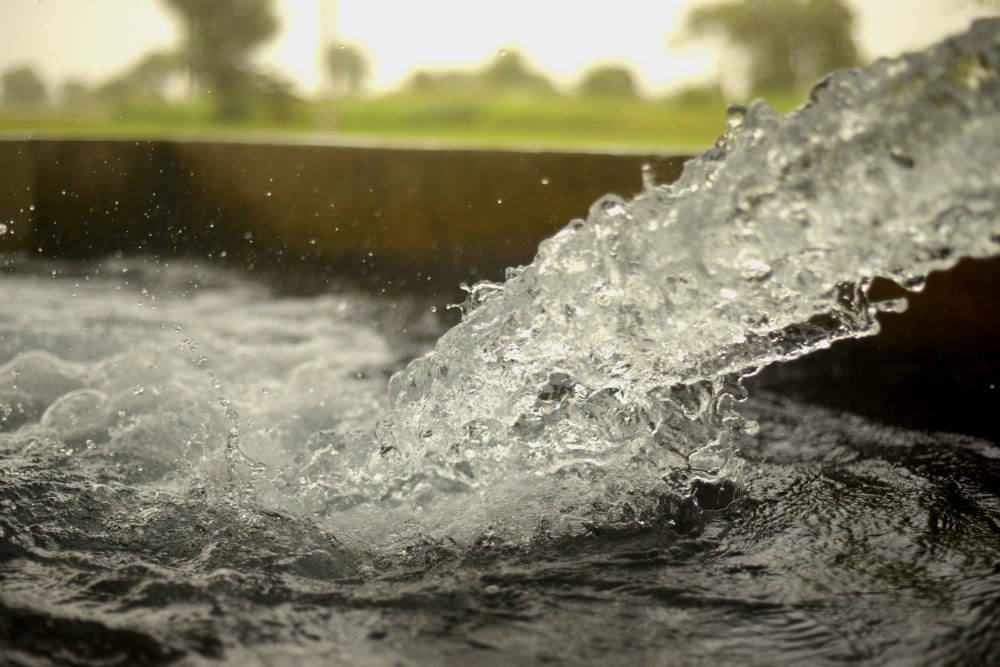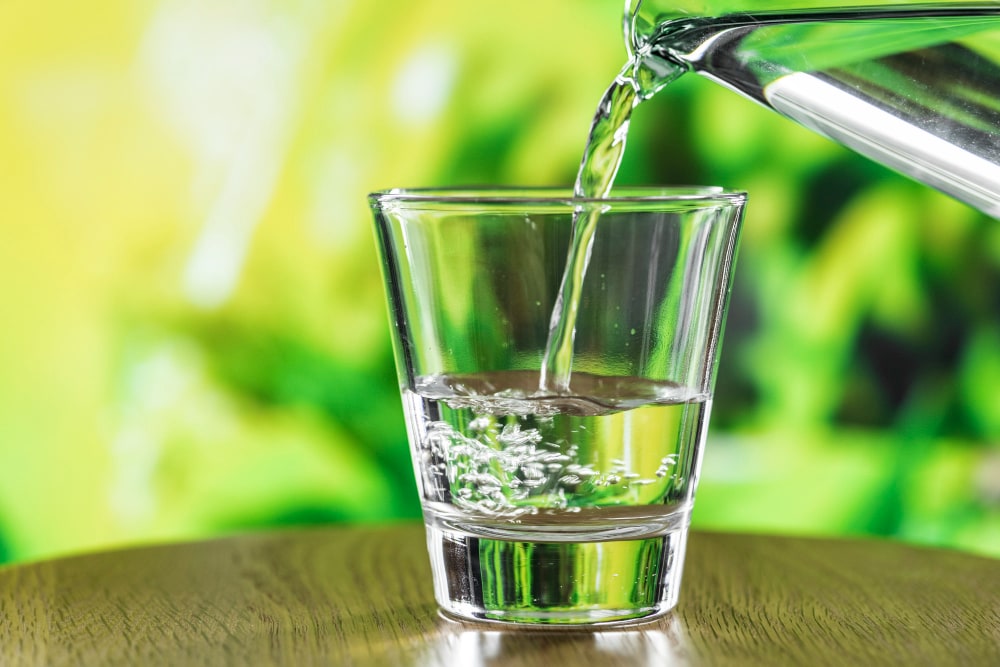If you've always lived with city water systems, it may seem strange to rely on getting your water directly out of a well in the ground. Conversely, that may seem perfectly natural to you, and you're uncertain about having to rely on a local municipality to supply your water.
In this article, we'll examine the pros and cons of each type of water, plus look at how you can best maintain your supply system and improve your home's water quality.
Everybody needs water. You need it for drinking of course, but you also use it for cooking, washing, cleaning, laundry, and personal hygiene. If you've suffered an interruption in your water, you quickly realize just how much we depend on a consistent supply of water.
Many of us have lived much or all of our life with one source of water, either city water or well water. We may not be familiar with the differences when we compare well water vs city water - differences that could be significant if we have to switch from one to the other or need to make a choice between the two.
In this article, we'll examine the differences between each water source, plus the pros and cons of well water and city water. We'll help you decide which is better for your situation, and how you can ensure a regular clean water source for your home.
Most Americans rely on city water, supplied by a local water authority. In exchange for paying monthly water bills, they can usually rely on a clean, uninterrupted supply of water that's tested to meet water quality standards established by the Environmental Protection Agency.
But over 13 million American households have a private well for their water. These systems use pumps to pull water from the ground
Well water comes from a private well that the homeowner drills on their property to access underground aquifers.
Once the well is drilled, the water must be pumped to the home. In some cases, it may need to be treated to remove excess minerals. This depends on the area's geology.
Also known as municipal water, city water is piped to individual homes via a centralized system that is responsible for its collection, treatment, and distribution. The sources of city water vary. It can come from surface water sources like rivers, natural lakes, or reservoirs. Or the local water authority may tap into groundwater for their water.
In most cases, city water systems will use a chemical treatment to ensure that the water is disinfected from naturally occurring contaminants like parasites, bacteria, and viruses. Water will also be treated to remove dirt and sediment via a filtration system and other processes.
There are some distinct advantages to having your own reliable source of drinking water from a private well. In this section, we'll examine some of the pros of well water.
Right at the top of the list of advantages to having well water has to be the elimination of a monthly water bill. When you have your own private well you can skip paying a monthly water bill to the local utility. And if you have your own septic system, you won't have to pay for sewage as well. Of course, when you have your own well, it's your responsibility to pay for your pump and other infrastructure as necessary.
Well water comes from underground aquifers, so it naturally will contain more minerals than water from surface water sources. This can affect the taste of the water. Many prefer the fresh mineral taste of water from a well.
City water sources can be contaminated by pollutants such as harmful chemicals from industrial sites during natural disasters such as floods. In most cases, this will not be an issue with well water.

Many people prefer city water. If you have the option to tap into a city water system there are several advantages you can enjoy. Let's examine some of those here.
City water supplies are tested regularly and the water must meet or exceed EPA quality guidelines. While high-profile cases of contaminated water make headlines, these are the exception and not the rule. In addition, remember that testing well water is entirely your responsibility.
Unless you're in a rural location, there's a good chance that you can easily access city water. Connecting to city water doesn't require the initial investments that are required for well water.
Mortgage lenders are more likely to make loans for homes with reliable city water. And in most cases, the resale value of the moe will be greater than that of a home that isn't connected to city water.
While you don't get a monthly bill for your well water, there are some disadvantages to well water systems.
Unless you have a gravity-fed spring (unlikely), you'll need to pump the water out of the ground to supply your home. In the event of a power outage, your pump will quit working and you'll find yourself without a supply of drinking water and water for your other needs. To ensure that your own water supply continues to work, you'll need a backup power supply, with a generator or by using solar power with solar panels and batteries.
Just because your water comes out of the ground, that doesn't guarantee that it's safe to drink. It's important to have your water tested on a regular basis.
How much water your well supplies is up to you. If your well starts running dry, you'll need to invest money in deepening it until a consistent supply is established.

Despite its dependable supply, and dedicated testing procedures, city water does have some drawbacks. Here are a few:
Most city water is usually taken from surface water sources, like rivers, lakes, or reservoirs. These sources can be affected by runoff and contact with pollutants. Because of this, city water requires filtration and chemical treatment.
Water infrastructure isn't free. As equipment and pipes need replacement and systems grow, the operating costs can increase, resulting in increased water bills.
As with many simple questions, there is no simple answer to this. In many cases, the decision is made for you, but if you have a choice on which way to go, you'll need to carefully balance the pros and cons of each to make a decision on which way you want to go.
Whatever your decision is, be sure that you understand all of the potential benefits and pitfalls of each type of water supply.
Everyone will agree that, no matter how we get our water, we want it to be clean and healthy. The best way to guarantee that you'll always enjoy healthy and clean tap water is to use a whole house water filter in your home.
Whole house water filters provide health benefits for everyone in your home by filtering our hash chemicals, heavy metals, nitrate contamination, and more.
There are two main types of whole house water filter systems, those using a backwashing filtration system and those with cartridge filters.
These systems use a large tank containing a loose media filter. Water flows through the system, then is backwashed back out to remove contaminants. The advantage of these systems is the longevity of the filter media - it will only need to be replaced every few years.
These systems use one or more easily removable filter cartridges that must be replaced regularly. Maintenance is easier but more frequent than with backwash systems.
Another way to ensure clean drinking water for your home is to employ an ultraviolet filtration system. These can be used in conjunction with other filtration systems to kill any harmful microorganisms that may be present in your water.
Clean water is important. If you're in the Dallas Fort Worth area and you are in the market for a filtration system, or if your home's plumbing system needs additional attention Team Enoch has the expertise to fix whatever may be wrong. Contact us for all your plumbing needs. Remember, estimates are always free!
